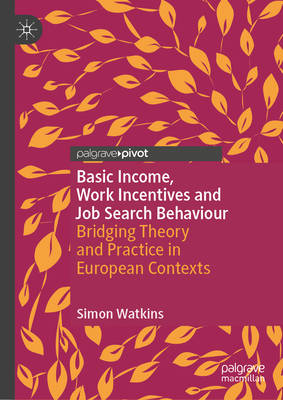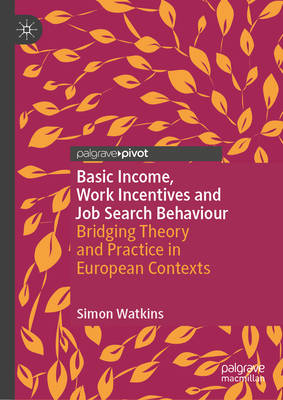
- Afhalen na 1 uur in een winkel met voorraad
- Gratis thuislevering in België vanaf € 30
- Ruim aanbod met 7 miljoen producten
- Afhalen na 1 uur in een winkel met voorraad
- Gratis thuislevering in België vanaf € 30
- Ruim aanbod met 7 miljoen producten
Zoeken
Basic Income, Work Incentives and Job Search Behaviour
Bridging Theory and Practice in European Contexts
Simon Watkins
€ 68,95
+ 137 punten
Omschrijving
This book analyzes existing welfare regimes across Europe, offering an exploration into how basic income principles might influence job search behaviour. Drawing on time-use data and fuzzy-set qualitative comparative analysis, it challenges assumptions about work incentives and demonstrates that institutional contexts significantly mediate welfare effects. The analysis develops an innovative "ideal type" framework that measures how existing systems approximate basic income principles, unconditionality, universalism, and non-withdrawal of benefits. Chapters explore the complex relationships between welfare design and job search intensity, with a special focus on providing evidence as to whether conditionality increases job search or if certain configurations of accessibility and high participation tax rates decrease it. Comparing ten European countries and counterfactual examination of Finland and the UK, the book provides empirical grounding for debates often based on theoretical assumptions. The resulting text provides insights for designing context-appropriate strategies for basic income implementation that enhance income security while preserving individual autonomy.
Specificaties
Betrokkenen
- Auteur(s):
- Uitgeverij:
Inhoud
- Aantal bladzijden:
- 202
- Taal:
- Engels
- Reeks:
Eigenschappen
- Productcode (EAN):
- 9783031991967
- Verschijningsdatum:
- 24/08/2025
- Uitvoering:
- Hardcover
- Formaat:
- Genaaid
- Afmetingen:
- 148 mm x 210 mm
- Gewicht:
- 417 g

Alleen bij Standaard Boekhandel
+ 137 punten op je klantenkaart van Standaard Boekhandel
Beoordelingen
We publiceren alleen reviews die voldoen aan de voorwaarden voor reviews. Bekijk onze voorwaarden voor reviews.








